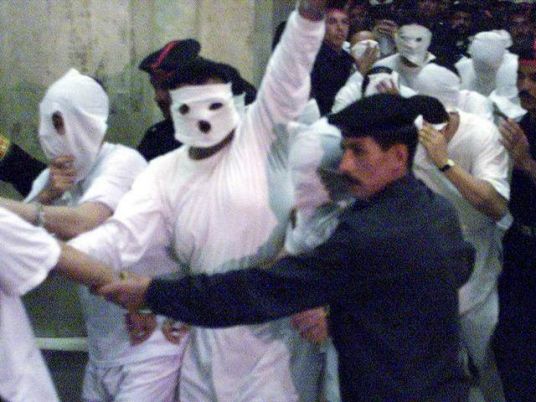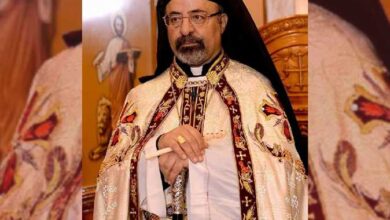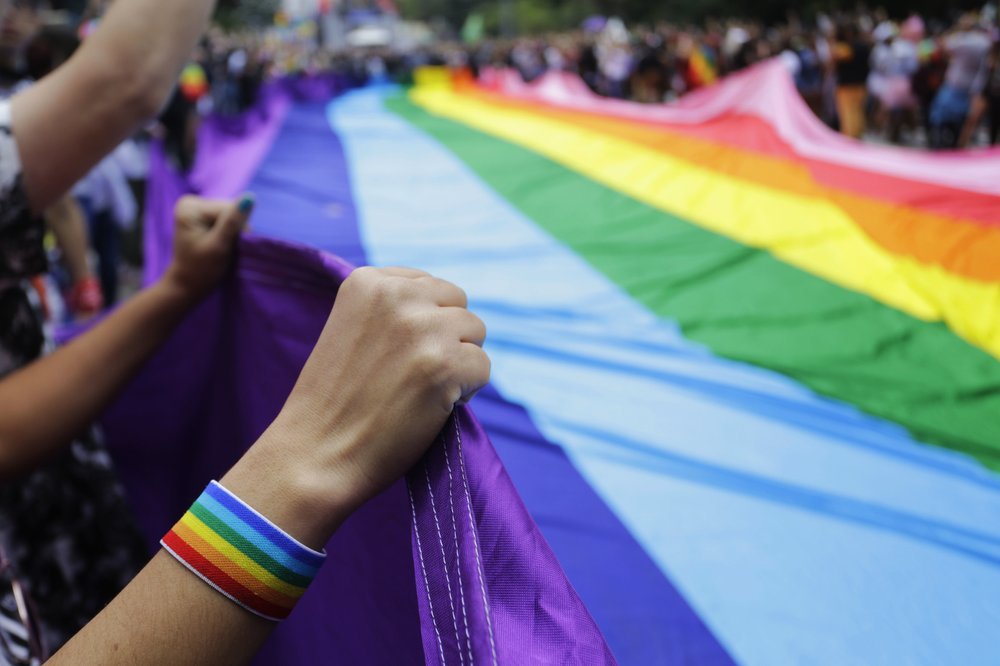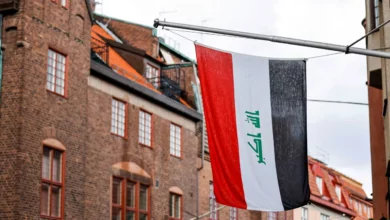
Egyptian prosecution ordered on 12 October 2013 fourteen suspects to be detained for four days pending investigation after being caught “in the act of homosexuality” inside a health spa in the poor neighborhood of al-Marg, north-east of Cairo.
Al-Marg local police chief Khaled al-Haitamy confirmed to Egypt Independent that the detained were caught naked while they were “performing sodomy in closed rooms and using some sexual devices such as vibrators and tramadol [a pain-killer].”
Police confiscated the evidence, along with LE 900 from the center, which was then sealed off. The arrested, whose ages ranged from 30 to 60, were referred to a pathologist for forensic reports.
Using the law as a pretext
The timing of arrests came just a few days before Eid al-Adha, a religious holiday in Muslim countries. Dalia Abdul Hameed, a lawyer on gender issues, says this is no mistake. “The same happened last year around couple of days before Eid al-Adha when police stormed into an apartment and arrested seven gay men, referring them to Nozha police station and they were eventually acquitted,” she said.
The latest arrest, like the previous, is a clear message to the homosexual community, punishing them for their deviance from Egypt's religious and social norms. “There are Muslims and Christians around who are strict in their rituals and traditions and they complained,” said al-Haitamy. “The owner of the place is a son of bitch and a khawal [fag]. He fled the scene. These gays are sick!”
In a religious and culturally conservative country such as Egypt, despite there not actually being a law criminalizing homosexuality, the state will still likely pursue the case. “Both the police and judiciary is likely to level charges of debauchery and prostitution at homosexuals to legalize arresting and indicting them,” said Dalia Abdul Hameed, a lawyer on gender issues.
The Egyptian government has trouble with laws dealing with homosexuality or gender issues as cultural traditions and religious norms are often used to justify the misuse of laws, says Adel Ramdan, a lawyer with Egyptian Initiative for Personal Rights, who has been working on gay issues for several years.
Ramdan told Egypt Independent that police usually crackdown on homosexual gatherings, claiming it is an act of debauchery criminalized by the law. Since these homosexual gatherings occur in areas the police deems as “commercial places,” they are then accused of paying money for sexual favors. In this particular case, their large numbers further cemented police suspicions, motivating police to raid and arrest all people on the premises.
The raid on the health spa, though viewed by many conservatives as a success, was performed without a warrant from prosecution. Instead, the raid was made solely off suspicions reported from residents about homosexual activity in the area.
“They were caught red-handed so we didn’t need a warrant from prosecution. It is the same if you arrest a thief or a murderer red-handed, then you do not need a warrant,” argued al-Haitamy.
Ramdan confirmed that in cases when police has reasonable suspicion that individuals are engaged in illegal activity, they can legally raid the premises without a warrant from prosecution. However, in this case, since the police had been undergoing investigations with neighbors and there was a doubt of suspicion, they should have requested a warrant from prosecution to undergo the raid.
Prostitution? Or just gay?
According to Ramdan, Egyptian law does not criminalize homosexuality as long as it does not entail business or receiving money in return for sexual acts. “As long as the sexual relationship is personal, it is not a crime. It is only criminalized if it is proved commercial sex, which entails an act of debauchery for a man and prostitution for a woman,” said Ramdan.
Although the 14 suspects were caught performing homosexual acts, prosecution has yet to prove they exchanged money for sex. Regardless, it seems these individuals will be indicted nonetheless as prosecution has made no distinction.
Yehia Shawkat, who was not a frequent client of the spa but had visited it on occasion, said that although he shares a dislike the establishment, the clients of the spa were not engaging in paid sexual services. “They were having sex, even gang sex but they could not afford to pay for it,” he said.
The police used the misnomer of the center's physical therapy designation as proof that illegal activities were being conducted on the premises. “Besides, the center has no license and people were caught red-handed,” said al-Haitamy. “This center was set up for physical therapy not debauchery.”
Shawkat, who preferred not to give his real name, corroborated the police depiction of the conditions. The health spa, which he says was referred to as a “physical therapy center” as not to arouse suspicion, was an “awful, poor-quality center” and the whole sauna clientele were poor and from slum areas.
Since homosexual relationships in Egypt are mostly casual, Shawkat says, the poor tend to frequent more run-down establishments in order to find a sexual partner, whereas the rich go to high-class saunas where the owners follow stricter regulations to maintain reputation.
Like others, Shawkat originally discovered the center through an advertisement in other saunas with a picture implying it was for homosexuals. As none of the people arrested were from the neighborhood, al-Marg, many had made a far trek to visit the center.
Regardless, Shawkat denies any male prostitution took place in the center, saying the only money he paid was an admission fee of LE 10. Rather, the spa was a place where homosexual men could act out their urges away from the judging eyes of society.
In order to prove their participation in prostitution, police referred the accused to the forensic medical authority to check for penetration. Ramadan says such an examination is legally and humanitarianly baseless, as it does not prove that they were engaging in sexual acts for commercial purposes. “The condition of a person who has sex with his friend, which is lawful, would be the same as for illegal prostitution. The examination is merely intended to humiliate,” he said.
Apart from that, Ramdan says the “red-handed catch” must be based on tangible evidence such as the police seeing the incident directly rather than merely receiving reports. For example, “they could have gone to see the license of the center and come across the situation,” he said.
The stigma that homosexual people receive from both the society and police treating them as criminals drives gay people to put themselves in situations where they violate the law. If homosexuals were more tolerated in society, Ramdan says, many would not feel the need to visit underground “beauty centers” or “saunas” where they engage in casual public sex with strangers and sometimes run into trouble. “If Egyptians in general practiced sex normally, they would rarely go to brothels,” he said.
But since there are traditional, societal and state constraints, Ramdan says, homosexual people seek partners in suspicious or underground places. “Due to the state interference in people’s sexual life, we have many sex-related problems including sexual harassment, incest and customary law marriage, etc.,” he said.
Abdel Hameed affirms the state and society perspectives of gays should not be mixed up. Despite societal disdain to homosexuals, the state is assigned to respect human and personal freedoms.



